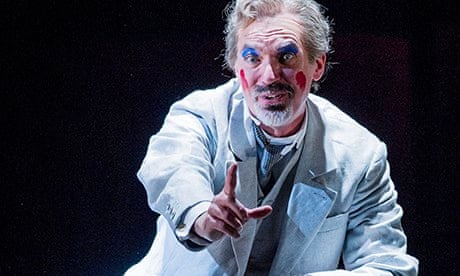First seen in Aldeburgh in 2007, Yoshi Oida's production of Britten's last stage work has now entered Opera North's repertoire as the final instalment of its Festival of Britten. A thing of simple beauty – though not without its eccentricities – it is dominated by a performance of great integrity from Alan Oke as Aschenbach, which is essential listening, even though the piece itself has considerable longueurs that make it a forbidding prospect for many.
We first encounter Oke's Aschenbach standing by a grave, which we soon realise is his wife's, but which will also eventually become his own. Watching and hearing this emotionally dessicated man begin to feel again, as his body relaxes and warmth begins to course through his voice, is immensely moving and ensures that our sympathies remain with him as desire and love rapidly turn to obsession.
Though the work stands or fall by its central performance, this is by no means a one-man show. Peter Savidge is gracefully sinister as the multiple harbingers of death that propel Aschenbach on his journey towards catastrophe. There's a beautiful, eroticised Apollo from Christopher Ainslie, and conductor Richard Farnes eloquently probes the score's tricky amalgam of tortured chromaticism and gamelan-based exoticism.
The great strength of Oida's production lies in its rejection of a naturalistic depiction of Venice itself, which allows Britten's seductive evocation of the city to do its work unaided, and intensifies our focus on the protagonists. Yet in an opera that constitutes Britten's most explicit statement on his own sexuality, and a staging that is often wonderfully homoerotic, it seems utterly perverse that the mute, omnipresent Tadzio should be played, not always convincingly, by a woman (Emily Mézières), in drag – a huge mistake in an otherwise fine evening.

Comments (…)
Sign in or create your Guardian account to join the discussion